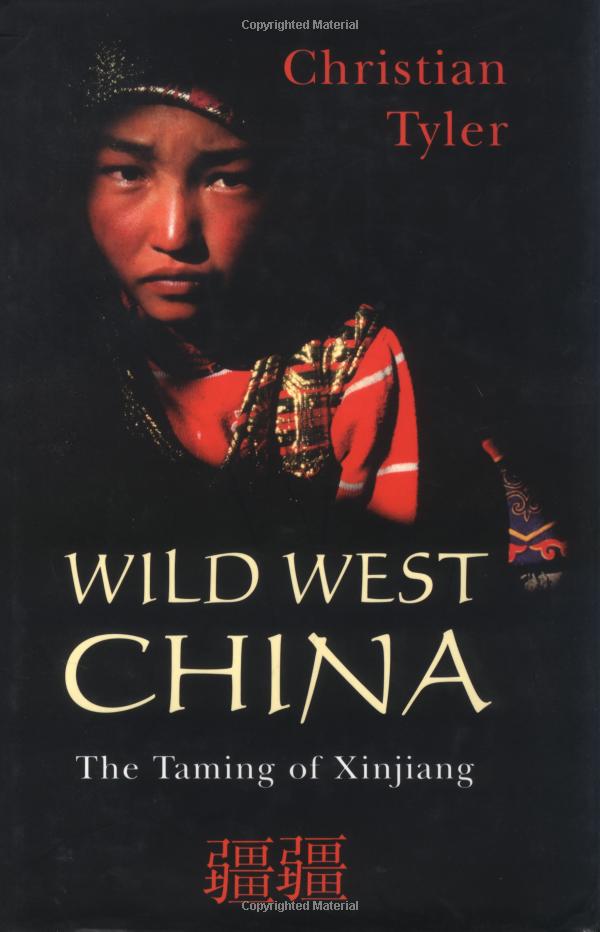
Buy it from Amazon
FYI, these are sometimes referral links!
| Subtitle | The Taming of Xinjiang |
| First Written | 2004 |
| Genre | History |
| Origin | China |
| Publisher | Rutgers |
| ISBN-10 | 0813535336 |
| ISBN-13 | 978-0813535333 |
| My Copy | library copy |
| First Read | October 12, 2017 |
Wild West China
This is a sort-of-academic-but-trying-to-be-popular overview of Xinjiang Province. It covers from ancient history to the modern day, but with the 19th century onward taking about 2/3 of the book, and the second half is pretty much all since the founding of the PRC in 1949. It's a good overview, if not really gripping reading.
Noted on November 13, 2017
When the 3rd page of the book mentions one of my favorite other books as one of his childhood favorites, things are looking up.
Noted on November 13, 2017
All history is political, but Chinese history is more political than most. It is an uncomfortable fact for Han Chinese nationalist that the mummies [ancient mummies found in Xinjiang] show so little racial affinity with them - that 'Europeans' got to the Tarim basin before they did.
Quoted on November 13, 2017
Today her story [the 'fragrant concubine'] continues to carry very different meanings. But however she is portrayed, to us Iparhan gracefully illustrates a dangerous ambiguity in the relationship between Beijing and Xinjiang - the province which is part of China but is not Chinese, the 'autonomous region' which has no autonomy, the homeland of a people who are called Chinese but who call themselves Muslim, Turki or Uighur.
Quoted on November 13, 2017
The weakness of the empire was savagely demonstrated by the Taiping Rebellion of 1850-64. Organized by a village schoolmaster who decided he was the younger brother of Jesus Christ sent to rid China of the Manchu 'demons', it lasted fourteen years and cost 20 million lives.
Quoted on November 13, 2017
As occupiers (in 1760-ish), the Manchus tried at first to be discreet. They did not force the Turkis to shave their foreheads and wear the pigtail, or 'queue.' They did not want them provoked, so they said, by crimes of 'hair, sex and money.'
Quoted on November 13, 2017
Like the Jews, the Turks saw themselves as God's chosen people. According to Mahmut Kashgari, an eleventh-century Uighur poet and composer of the first Turkic dictionary, God himself gave the Turks their name, regarded them as his private army, and put them in charge of 'troublemakers in the east - the Chinese, presumably...
Quoted on November 13, 2017
To our sedentary societies these great movements of the past seem almost incomprehensible. True nomads are virtually extinct in Eurasia today, even though seasonal transfer - transhumance - is still practised today by Kazakhs in the Tian Shan mountains and by Kyrgyz in the Pamirs. Yet one has only to glance at the physical map of Eurasia to see that above the 46th or 48th parallel, north of a belt of deserts, mountains and seas, the steppe road is wide open all the way from Mongolia to northern France. Armed riders and traders could range freely back and forth across vast distances, and for a horseman averaging a modest 40 miles a day it would take a mere three months to ride from, say, Ulan Bator to Berlin.
Quoted on November 13, 2017
The Tibetans had united in about AD 600 and were spilling out of their mountain fortress in all directions. In 662 they inflicted a serious defeat on the Chinese at Koko Nor on the Qaidam plateau. It is hard today to imagine the TIbetans as a warrior nation. But for nearly two hundred years they fought the Chinese armies tooth and nail, descending from their icy plateau to seize control fo the desert to the north. At Miran they built an imposing fort which still stands among the houses and stupas of the Buddhist city.
Quoted on November 13, 2017
The Baby General was a mystery to everyone, perhaps even to himself. Variously described as an agent of Japan, of Moscow, of the British in India, his real loyalty was probably to the vision he had of himself as a new Tamerlane. The German engineer Georg Vasel said he was a typical product of inner Asia. 'He was one of those types - half field-marshal and half-gangster - who, when successful, are historic heroes, and when unsuccessful end their lives in some dungeon.'
Quoted on November 13, 2017
The minorities' right to self-determinatino had been part of the Chinese Communist Party's agenda from its founding in 1922. The young Party envisioned a sort of United States of China, comprising the Middle Kingdom, Tibet, Mongolia and Xinxiang. A draft constitution drawn up in 1931 promised the right of self-determination - including independences if they chose it - to Mongols, Uighurs, Tibetans, Miaos, Koreans and others. After Mao took charge in 1935, however, the emphasis began to change, just as it was to change and change again up to the end of the century.
Quoted on November 13, 2017